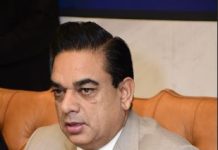ISLAMABAD, MAY 19 /DNA/ – The Federation of Pakistan Chambers of Commerce & Industry’s Businessmen Panel (BMP) has stressed the need for revisiting terms of power purchase agreements with a view to restore the viability of country’s energy sector, as billions of rupees could be saved by making payments to IPPs in local currency instead of dollars.
FPCCI former president and BMP Chairman Mian Anjum Nisar said that in view of decreasing cost of production and lessen energy tariffs, the government should bring some major changes in the agreements with IPPs, who are earning high profits due to certain terms and conditions of their agreements.
He further disclosed that the high cost of power tariff was due to a host of factors, including snowballing capacity payments, net hydel profit, transmission constraints, minimum plant factor provision for RLNG based plants, gas price anomalies and financing cost of circular debt.
The FPCCI former president said that Pakistan pursued an aggressive policy to add power capacity, but years of slow economic growth, power theft, and under-investment in transmission and distribution networks have meant that bill recovery has not been at par.
He said that most IPPs had an investment payback period of 2-4 years, profits generated were as high as 18.37 times the investment and dividends 23 times the investment and under the 1994 Power Policy, 16 out of 17 IPPs invested a combined capital of Rs52 billion and earned profits in excess of Rs417 billion. The governments’ failure to contain the circular debt had cost the country over Rs5,082 billion in the past 15 years, with an annual loss of Rs370 billion.
Mian Anjum Nisar added that restoring energy sector viability requires strong cost-side reforms, including continuation of efforts to improve transmission infrastructure, better integration and expansion of renewable energy capacity; improving DISCO performance via either privatization or long-term management concessions; moving captive power demand to the grid; revisiting, the terms of power purchase agreements; and continuing to convert publicly-guaranteed PHPL debt into cheaper public debt.
He outlined the reforms’ agenda that has either been undertaken by Pakistan or where Islamabad needs to put more efforts.
In the case of the energy sector, terms of power purchase agreements have not come heavily under the scanner as the focus has first been on taking recovery and tariffs to a sustainable level.
Higher energy prices triggered mass protests across Pakistan last year and have also stifled energy demand with policymakers scratching their heads on how to move forward for the sector’s viability.
With runaway inflation triggering record high interest rates, demand for energy has reduced further, leaving the government in a ‘catch-22’ situation.
In a report, it is also admitted that the only sustainable solution for the sector is decisive action to address cost-side and infrastructure issues. He quoted the IMF report which is an important document as many see it as a guideline in the light of Pakistan’s pursuit for a longer, larger program with the IMF.
A mission of the lender is expected to visit this month ahead of the budget-making exercise where new taxation measures targeting non-filers and retailers are currently being pursued.
In the letter of intent, part of the IMF staff report, Pakistan also agreed that it will focus on mobilizing significant additional revenue especially in under-taxed sectors.
In its recommendations, he suggested to the government that basic tariff of IPPs should be changed in Pakistani currency instead of dollars and if this change is not made, an amount of Rs5,266 billion will have to be paid. Similarly, the profits to the IPPs owners should be given in Pakistani rupees instead of dollars.
The country could save Rs5,500 billion only with change of currency in the agreement, instead of Take or Pay contract. The government is suggested to revoke the practice of capacity payment based on ‘Take or Pay’ with the owners of IPPs.
The report also claimed that the IPPs’ owners showed extra cost to get extra tariff at the time of the contract, with NEPRA failing to check the veracity of cost. The cost of the power plant prepared by the companies was also accepted by the authorities, it further reveals.
The FPCCI former president observed that besides increasing exports and controlling imports the government will have to take administrative measures. He argued that the devaluation of the currency was dictated by the IMF through prior actions and it has nothing to do with macroeconomic fundamentals. He said that there was a complete breakdown of economic policymaking, as the country’s fiscal policy had become subservient to monetary and exchange rate policies.
He said that the monetary tightening and exchange rate depreciation resulted in higher inflation, public debt and debt servicing. The empirical evidence showed that the one percent monetary tightening hiked the inflationary pressure by 1.3 percent in the case of Pakistan, he added.

















